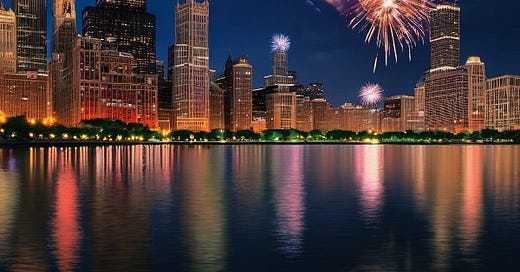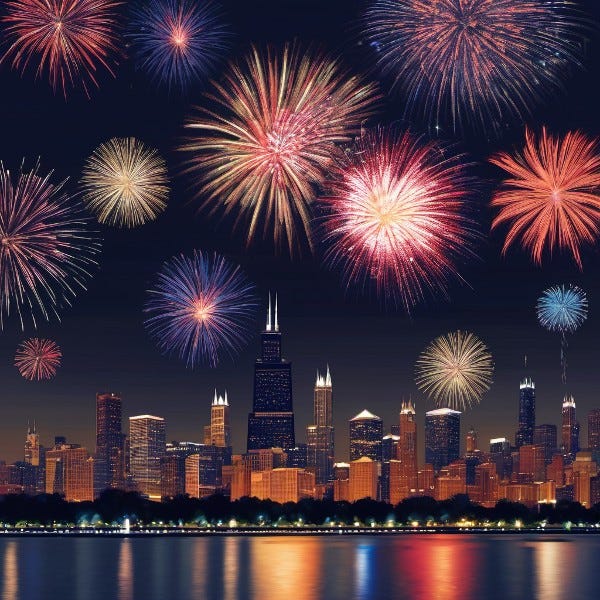Historically, we weren't free, but black folks still made moves on July 4
My response to the random Juneteenth history lesson I didn't ask for
This past Juneteenth, I opened my email to find a message from someone giving me a Latin language history lesson. He switched from linguistics to speaking about European history and the Catholic church in a follow-up email.
I stared at the message for quite a bit of time, thinking, “Of all the days to send me this message I never asked for, you chose one of the only two days that is a national and historical holiday for black folks.” I shook my head.
My response, “Wishing me a Happy Juneteenth would’ve sufficed.”
I planned to go about my day — until I got another message mentioning how it’d be really ironic if my dog was traumatized every Juneteenth (her name is Junee after adopting her on Juneteenth three years ago) because of fireworks. I patiently explained that fireworks aren’t a popular link to Juneteenth the way they are with the Fourth of July. Then, I wondered why once again it felt like this person was throwing salt on only one of two holidays for black folks.
Recommended Read: “My first time celebrating Juneteenth was with Mos Def ~ Learning about Chicago’s Inner-City Muslim Action Network”
My final message made it pretty clear how much I planned to enjoy myself on Juneteenth, and politely but firmly ended this peculiar conversation. But like the former co-worker who grumbled about Black History Month being “excessive,” I had to force myself to not be annoyed about those emails on my Juneteenth morning. Unlike the aforementioned co-worker, I like the email sender; the message itself just felt tone deaf.
ADVERTISEMENT ~ Amazon
As an Amazon affiliate, I earn a percentage from purchases with my referral links. I know some consumers are choosing to boycott Amazon for its DEI removal. However, after thinking about this thoroughly, I want to continue promoting cool products from small businesses, women-owned businesses and (specifically) Black-owned businesses who still feature their items on Amazon. As of the first date of Black History Month 2025, each new post will ALWAYS include a MINIMUM of one product sold by a Black-owned business. (I have visited the seller’s official site to verify that Amazon Black-owned logo.) I am (slowly) doing this with older, popular posts too. If you still choose to boycott, I 100% respect that decision.
Was I being too sensitive? Was it coincidental that I got this European history lesson on this day? Why was this brought up at all when there was no reason for us to communicate on this holiday? Was accusing my dog of being traumatized on this day even necessary or genuine concern about her health?
Recommended Read: “Unconventional ways to distract dogs from fireworks ~ The fireworks show is fun to hear and see — unless you own a dog”
ADVERTISEMENT ~ Amazon
As an Amazon affiliate, I earn a percentage for every purchase with my referral link.
This was yet another moment where I wondered why people are so uncomfortable when they’re not in the spotlight. I never mope around on St. Patrick’s Day, scowling at all the green. I see rainbow-centric festivities of PRIDE Month, and I’m chilling. I’ve hung out with old friends while celebrating Chinese New Year and Cinco de Mayo. It has never occurred to me to go, “Let’s talk about black people instead!” I take these moments as an opportunity to learn about something or someone I don’t know. (And yes, I’m aware there are black LGBTQ+ people, but you get my larger point.)
But I admittedly cringed one year while sitting on my parents’ porch. A couple of sistas walked by, waving and loudly shouted “HAPPY 4TH OF JULY” to our group. I immediately wondered if they were this geeked on Juneteenth. Instead of repeating their greeting back, I smiled, waved and complimented the speaker’s shoes.
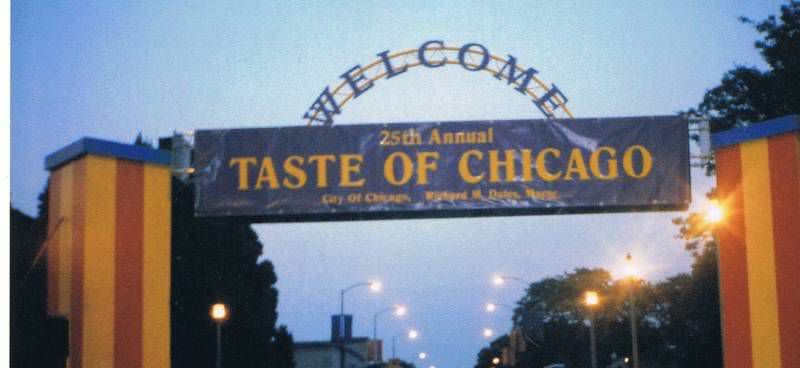
But I sound like a hypocrite not reciting the greeting back, largely because I was glued to the grass in downtown Chicago for over a decade to watch the Taste of Chicago fireworks (before former Mayor Rahm Emanuel got rid of them). There was a time when me and fireworks were BFFs, even if I was thinking of Frederick Douglass’ speech in the back of my mind.
ADVERTISEMENT ~ Amazon
As an Amazon affiliate, I earn a percentage for every purchase with my referral link.

Unlike other holidays, the Fourth of July is an “American” holiday that doesn’t particularly focus on one group — although a sizable amount of people were not “independent” on Independence Day, but I digress. So I plan to take a different approach this year that sorta resembles what my email sender did.
Instead of grumbling about 1776 versus 1865, I looked at BlackFacts.com to see what I could celebrate on July 4. Here are five interesting black history lessons I learned.
Black History on the Fourth of July
1. Louis Armstrong
Although plenty of history sources confirm that the well-known trumpeter and vocalist was born on August 4, for some reason, a few other sites say the following: “To the end of his life, Armstrong always insisted that he had been born on the Fourth of July. It was the day he celebrated his birthday.” (He died on July 6 at either 69 or 70, which would’ve been two days after the birthdate he’s rumored to have celebrated.)
ADVERTISEMENT ~ Amazon
As an Amazon affiliate, I earn a percentage for every purchase with my referral link.
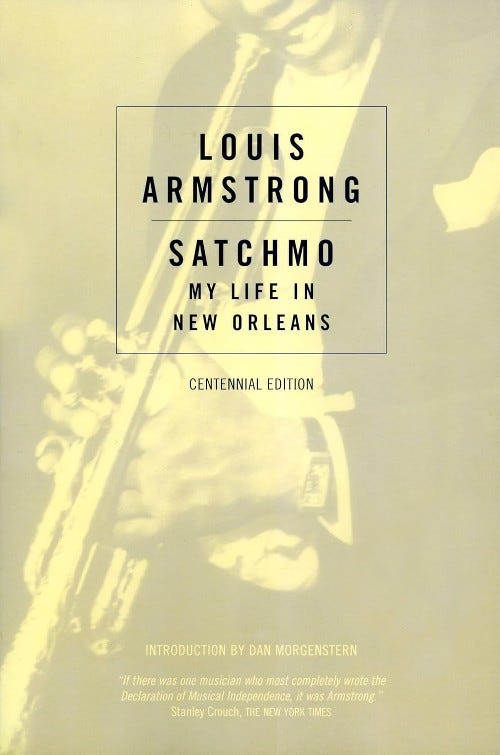
2. William Lloyd Garrison
On July 4, 1854, Garrison publicly burned the Constitution at an abolitionist meeting, opposing the Civil War until former President Abraham Lincoln issued the Emancipation Proclamation.
“Suppose that, by a miracle, the slaves should suddenly become white,” he implored listeners, according to a TIME article. “Would you shut your eyes upon their sufferings and calmly talk of Constitutional limitations? No, your voice would peal in the ears of the taskmasters like deep thunder.”
Recommended Read: “All on Fire: William Lloyd Garrison and the Abolition of Slavery” (paperback, hardcover, Kindle)
3. Tuskegee University
Created in a one-room shanty near Butler Chapel AME Zion Church, Dr. Booker T. Washington founded the historically black college on July 4, 1881. This was authorized by Alabama House Bill 165. Additionally, according to the university’s official website, credit should also go to Lewis Adams — a former slave who became a tinsmith, harness maker and shoemaker — for his initial help at trying to start a school before Washington arrived and for how essential he became once the school was approved. Adams was one of three men to sit on Tuskegee’s first Board of Trustees (formerly the Board of Commissioners). In 1890, he joined the faculty and taught his three trades. He remained a member of the board until he passed away in 1905.
4. Jack Johnson
Jack Johnson, the first black heavyweight champion, successfully defended his heavyweight championship on July 4, 1910. He fought "The Great White Hope" Jeffries, who reportedly came out of retirement "to win back the title for the white race … I should step into the ring again and demonstrate that a white man is king of them all.” The result? In a 22,000-capacity stadium at downtown Reno, in front of an entirely white crowd, Johnson knocked him out.
5. Malia Obama
Malia Obama, daughter of former President Barack H. Obama, was born on July 4, 1998. She is a writer and director, most popularly known for the let’s-act-like-this-is-not-about-the-Beyhive movie “Swarm,” starring Dominique Fishback. The 2021 graduate from Harvard University (major: Visual and Environmental Studies) also worked on 2010’s “West Wing Week” and 2023’s “The Heart.”
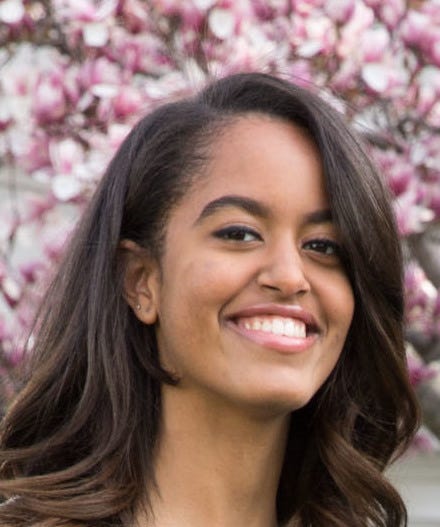
According to Donald Glover/Childish Gambino, the 44th president’s oldest daughter will make her directorial debut with a short film produced by Glover's company "Gilga.”
Did you enjoy this post? You’re also welcome to check out my Substack columns “Black Girl In a Doggone World,” “BlackTechLogy,” “Homegrown Tales,” “I Do See Color,” “One Black Woman’s Vote” and “Window Shopping” too. Subscribe to this newsletter for the weekly posts every Wednesday. Thanks for reading!

